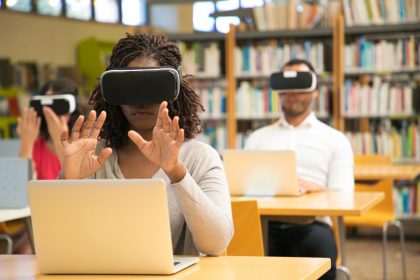Step out into almost any global metropolis today—whether it’s New York, London, Shanghai, or São Paulo—and you can sense an invisible infrastructure humming beneath the surface. The streets are filled with people glued to their phones, but the real revolution lies in the unseen systems guiding transportation flows, managing energy usage, and mapping consumer behavior. In major cities, artificial intelligence is recalibrating traffic lights in real time, predicting congestion before it happens, and offering commuters alternative routes through navigation apps. These subtle adjustments, imperceptible to the average pedestrian, create ripple effects that influence arrival times, stress levels, and even where people choose to shop on their way home.
Food delivery platforms—powered by complex logistics technologies and personalized recommendation engines—have shifted eating habits, making late-night dining and diverse cuisine accessible at the tap of a screen. Cultural discovery has also migrated onto mobile platforms: apps inform residents which exhibits to catch, which concerts are starting nearby, or even which hidden cafes are attracting attention on social media. As technology fades into the background of these everyday decisions, it is simultaneously automating and accelerating the tempo of metropolitan life, at times leaving citizens marveling at new possibilities, but at other times uneasy about privacy risks, surveillance, and over-dependence.
The integration of smart infrastructure—energy-efficient lighting systems, public Wi-Fi, app-based bike rentals, and data-driven utility management—has made cities more agile and decarbonized. But while these systems feel like luxuries of the present, just a generation ago they were speculative concepts. Today, millions trust them instinctively, often unaware of how profoundly their habits are being directed and predicted by code embedded within governments, corporations, and consumer platforms.
Beyond convenience, technology is rewriting the socioeconomic fabric of big cities. The rise of cashless payments has transformed how local businesses operate, while inadvertently squeezing out informal vendors who historically relied on physical transactions. In hubs like Stockholm or Singapore—where cash use is rapidly disappearing—small street sellers struggle if they cannot afford the platforms or devices required to accept digital payments. What may look like seamless modernization from above can fracture communities below.
The expansion of urban surveillance, often welcomed for its promises of safety, is another double-edged sword. High-definition cameras paired with AI-driven facial recognition systems now line train stations and public parks, creating an omnipresent layer of monitoring. While this deters crime, it also reshapes public behavior, subtly altering how people interact in spaces once assumed to be anonymous. Civil liberties debates—from London to Beijing—show that the bargain between safety and freedom is being renegotiated in ways cities are only beginning to comprehend.
Meanwhile, the global shift toward remote and hybrid work has transformed the geography of cities. Financial districts that once pulsed with office workers five days a week now stagger under reduced foot traffic, while suburban cafés brim with laptop-carrying telecommuters. This redistribution of labor reshapes transportation needs, commercial real estate, and even community dynamics. Entire urban economies—from food trucks near downtown towers to transit systems reliant on daily ridership—are being recalibrated in response to this new work culture.
And yet, these benefits remain unevenly distributed. In cities across Africa, Latin America, and Southeast Asia, millions still lack access to reliable internet, affordable smartphones, or basic digital literacy. This urban “digital divide” highlights stark inequities: one group enjoys frictionless access to telemedicine, online education, and international job opportunities, while another falls further behind economically and socially due to structural barriers.
The cumulative effect is that technology is no longer a straightforward story of efficiency or entertainment. It is reshaping how identities are formed, how trust is built, and how opportunities are distributed across sprawling populations. Metropolitan futures are increasingly defined not just by skyscrapers and subways, but by invisible algorithms and databases that silently structure the tempo and boundaries of everyday life.
Technology in big cities is best understood not as a set of gadgets, apps, or futuristic inventions, but as a pervasive and evolving ecosystem shaping how citizens eat, move, work, socialize, and even perceive themselves within urban space. Its presence is at once empowering and constraining—opening possibilities while introducing new risks and inequalities. The questions now facing policymakers, communities, and individuals revolve less around whether cities will continue becoming smarter, and more around who gets to shape that intelligence, who benefits most from its efficiencies, and who is left at the margins of this grand digital experiment.
In other words, the future of big cities is already here. The challenge is not to resist it, but to recognize how deeply embedded it has become—and to ensure that the systems driving everyday life remain inclusive, ethical, and sustainable.















